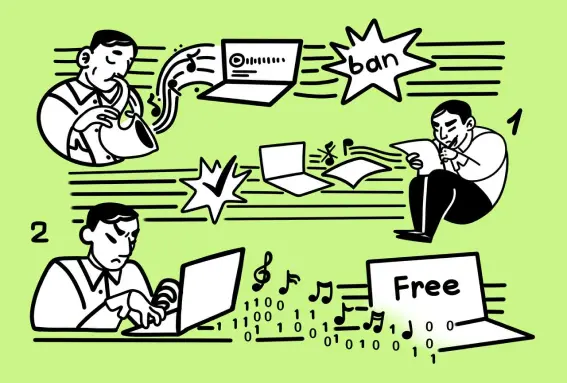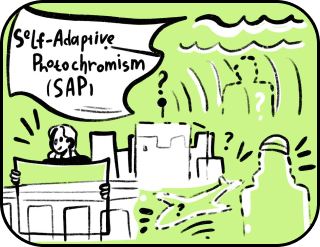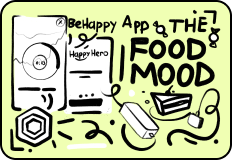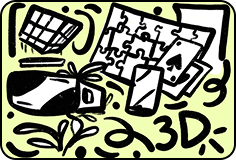The problem about music, algorithms and freedom
Damien and David write music. They dedicate all their time not only to composing melodies but also they try to solve not simple but very important problem for every musician
Damien and David understand that any author can come up with a melody that somebody has already written. The author will transfer the melody to notes and then for a long time he will prove in the court that the melody has come to him by accident. On the other hand, Damien and David understand that they wouldn’t like to be the authors whose melody has been repeated and to end up in the court as well
David has solved this problem in a usual-life, human way. Damien has suggested absolutely another unique solution and has spent on it 68 billion combinations of notes in total
And we suggest you guess what solution the musicians will use in future
David’s solution was based on the fact that any melody that has been created and recorded belongs to its creator. And before recording your music work one always needs to use music recognition services. Or to get an assistant that will use music recognition services
Damien’s solution was based on the fact that every musician values freedom. And neither already written melodies, nor author rights must not stifle this freedom
And any music is a certain set of notes sequences and that is why music can’t belong to anyone. Just like notes themselves
Based on that, Damien assigned each note of one octave a value of 1 or 0 and made a unique combination of numbers, on the basis of which he developed an algorithm. This algorithm of notes and numbers composes 300,000 melodies per second for one octave and 12 bars
After that, Damien uploads the melodies composed by the algorithm on the Internet marked “public domain”
How do you like this solution?
By the way, the real name of this musician is Damien. Damien Reel.
And his co-author Noi Rubin helped him develop the algorithm from numbers and notes

It seems we’ve found a way to decode Einstein’s unknown equation.
Thank you!




